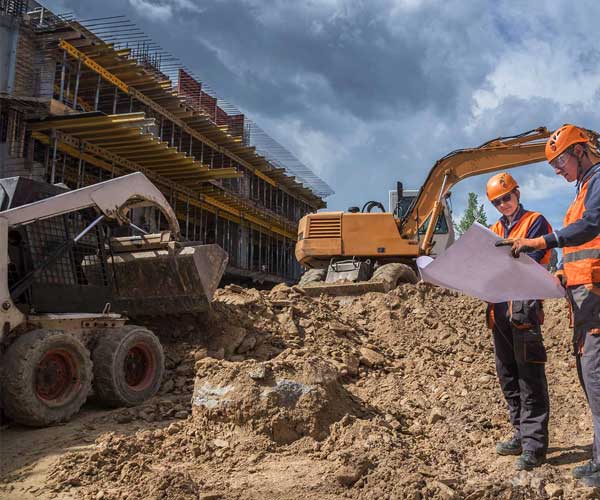Geo technical engineering services
Geotechnical engineering services involve the analysis, design, and evaluation of earth materials such as soil, rock, and groundwater in the context of civil engineering projects. Geotechnical engineers provide expertise in understanding the behavior of the earth's materials and how they interact with structures to ensure the safety, stability, and durability of construction projects. Here’s an overview of geotechnical engineering services:
Key Aspects of Geotechnical Engineering Services
Site Investigation and Soil Testing
- Conducting field investigations to assess soil and rock conditions at construction sites.
- Performing soil testing and laboratory analysis to determine soil properties, such as density, strength, permeability, and compaction.
Foundation Design and Analysis
- Designing foundations for structures based on site-specific soil conditions and load requirements.
- Performing analyses, such as bearing capacity, settlement, and slope stability, to ensure the stability of foundations.
Earth Retaining Structures
- Designing retaining walls, embankments, and slope stabilization measures to prevent soil erosion and landslides.
- Analyzing the stability and performance of earth-retaining structures under various loading conditions.
Ground Improvement Techniques
- Recommending ground improvement methods, such as soil stabilization, grouting, and compaction, to enhance soil properties and support construction.
Slope Stability Analysis
- Assessing the stability of natural and man-made slopes to mitigate risks of slope failure and landslides.
- Implementing slope stabilization measures, such as reinforcement techniques and drainage systems.
Deep Foundations
- Designing deep foundation systems, including piles and drilled shafts, to support heavy loads or to transfer loads to deeper, more stable soil layers.
- Conducting pile load tests and analyzing pile capacity to ensure structural integrity.
Groundwater Management
- Evaluating groundwater conditions and recommending dewatering systems to lower the water table during construction.
- Assessing the impact of groundwater on foundation performance and stability.
Seismic Analysis and Design
- Performing seismic hazard assessments and analyzing the response of structures to earthquake-induced ground motions.
- Designing earthquake-resistant foundations and structural systems to mitigate seismic risks.
Environmental Geotechnics
- Assessing the environmental impact of construction activities on soil and groundwater quality.
- Providing solutions for soil remediation and contaminated land management.
Construction Monitoring and Quality Control
- Monitoring construction activities to ensure compliance with geotechnical design specifications.
- Conducting field inspections and quality control tests to verify construction materials and techniques.
Applications of Geotechnical Engineering
- Building Foundations: Designing foundations for residential, commercial, and industrial buildings.
- Transportation Infrastructure: Providing geotechnical expertise for roads, bridges, tunnels, and railway projects.
- Water Resources: Designing dams, levees, and flood control structures.
- Energy Infrastructure: Supporting the construction of oil and gas pipelines, wind turbines, and solar farms.
- Environmental Projects: Assessing soil and groundwater conditions for landfills, waste containment facilities, and remediation sites.
Benefits of Geotechnical Engineering
- Safety: Ensuring the safety and stability of structures and infrastructure.
- Cost-Effectiveness: Optimizing design solutions to minimize construction costs and risks.
- Durability: Enhancing the long-term performance and service life of construction projects.
- Environmental Protection: Implementing sustainable solutions to mitigate environmental impacts.
- Regulatory Compliance: Ensuring compliance with building codes, regulations, and industry standards.
Geotechnical engineering plays a crucial role in the successful planning, design, and construction of civil engineering projects, providing valuable insights and solutions to address the complex challenges posed by the earth's materials.



